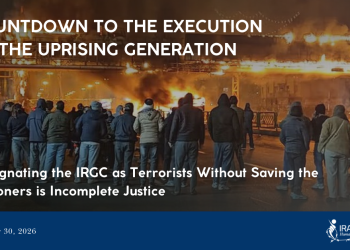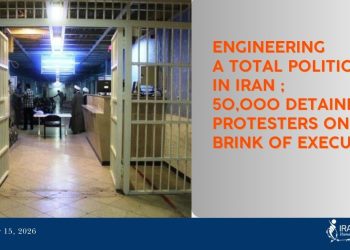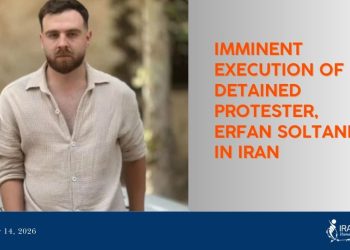Amir Moavi, a political prisoner in Iran, has been imprisoned for over 13.5 years without being granted a single day of furlough. His ordeal began following a series of protests in 2011 in Malashieh, a district in Ahvaz, which resulted in the death of a police officer.
Moavi, along with five others—Abbas Heydarian, Nasser Heydarian, Abbas Heydari, Ali Sharifi, and Ali Heydarian—was arrested by Iran’s intelligence services on April 20, 2011. The arrests occurred in connection with clashes between local protesters and security forces. Following their arrest, the detainees were subjected to severe physical and psychological torture in an effort to extract forced confessions. After enduring prolonged interrogations, Moavi and the other prisoners were transferred to Karun Prison in Ahvaz. When Karun Prison closed, they were relocated to Sheiban Prison.
In the autumn of 2011, Amir Moavi and his co-defendants were tried at Branch 4 of the Revolutionary Court in Ahvaz, presided over by Judge Kiyasi. They were charged with several serious crimes, including “waging war against God” (moharebeh), acts against national security, and the killing of a law enforcement officer. Moavi received a 35-year prison sentence, which was later reduced to 25 years upon appeal, along with an order for his exile to Babol Prison, located in northern Iran.
Four of his co-defendants—Ali Sharifi (also known as Naami), Abbas Heydarian (Jassem), Ali Heydarian (Taha), and Abdulrahman Heydarian (Nasser)—were sentenced to death for their alleged involvement in the murder of the police officer. Their executions were carried out on June 9, 2012.
In February 2013, Moavi was transferred to Babol Prison, significantly distancing him from his family. The relocation imposed an additional hardship on his relatives, who, due to financial constraints and the long travel distance, are rarely able to visit him.
Amir Moavi’s case is emblematic of the harsh treatment faced by political prisoners in Iran. Despite serving over a decade behind bars, he has not been granted the right to furlough, a common practice that allows inmates to spend short periods of time outside prison, often to maintain family and social ties. His lengthy sentence, the denial of furlough, and the mistreatment he endured during detention all highlight the broader concerns regarding the treatment of political prisoners in Iran, particularly those accused of crimes against the state.







